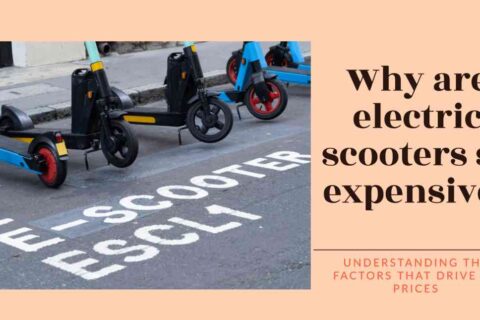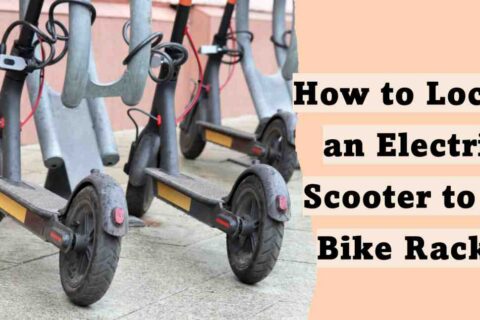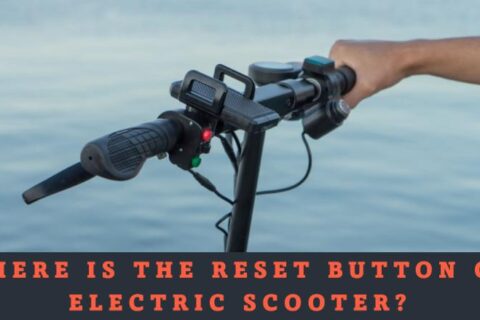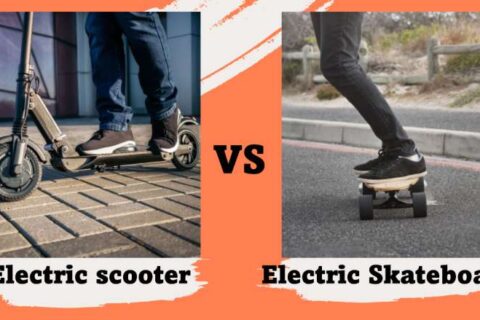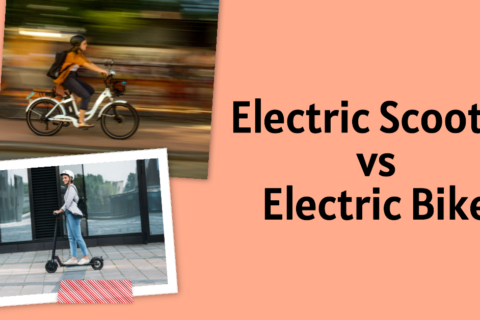In today’s fast-paced world of urban commuting, choosing the right personal transportation device can make a significant difference. When it comes to electric scooter vs electric skateboard, the decision becomes even more challenging, Right?
Throughout the article, we’ll strive to provide valuable insights and information while maintaining a conversational and relatable tone. Personal experiences and anecdotes may be shared to offer a more human touch and enhance your understanding of the subject matter.
We aim to provide you with a well-rounded perspective, combining the expertise of industry knowledge with the authenticity of real-life encounters.
So, whether you’re a daily commuter or an adventure seeker, join us on this journey to discover which ride is the perfect fit for you. Let’s dive in!

Table of Contents
ToggleElectric Scooter vs Electric Skateboard: Basic Comparison
Here’s a table summarizing the key differences between electric scooters and electric skateboards:
| Factors | Electric Scooters | Electric Skateboards |
|---|---|---|
| Commuting and Practicality | – Better range for longer distances – Considered more practical for commuting | – Easier to ride for longer distances |
| Speed and Power | – Can go significantly faster – Larger frame and more powerful motors | – Lower battery capacity |
| Terrain and Ride Quality | – Smaller wheels and low chassis – Issues on rough terrain and off-road riding – Commonly use pneumatic wheels | – Higher chassis – Challenging to ride on rough surfaces – Typically use urethane wheels |
| Cost | – Higher price point | – Lower price point |
| Stability and Fun | – More stability and practicality | – More fun and exciting to ride |
Speed and Acceleration Comparison
Speed Performance of Electric Scooter vs Electric Skateboard
Electric Scooters:
Electric scooters are known for their impressive speed. These compact vehicles are equipped with powerful motors that can propel them at high speeds, making them a popular choice for those seeking a swift and efficient mode of transportation. On average, electric scooters can reach speeds of up to 15-20 miles per hour (24-32 kilometers per hour), although some models can go even faster.
Electric Skateboards:
Electric skateboards, on the other hand, offer a different kind of speed experience. While they may not match the top speeds of electric scooters, they still provide an exhilarating ride. Electric skateboards typically have a maximum speed ranging from 15 to 25 miles per hour (24-40 kilometers per hour). It’s important to note that the specific speed will depend on the skateboard model and its motor capabilities.
Acceleration Capabilities
Electric Scooters:
Electric scooters excel in providing smooth and responsive acceleration. With their powerful motors and efficient drivetrains, electric scooters can quickly reach their top speeds from a standstill. This feature is particularly beneficial for navigating through traffic or maneuvering in crowded urban environments. The acceleration of electric scooters is typically controlled through a throttle or a push-button mechanism, allowing riders to control their speed with ease.
Electric Skateboards:
Electric skateboards also offer impressive acceleration capabilities, providing an exciting ride. Riders can experience a rapid boost in speed by utilizing the handheld controller or the pressure-sensitive foot pad. Electric skateboards often feature multiple speed modes, allowing riders to adjust the acceleration to their comfort level and skill level. It’s important to note that the acceleration of electric skateboards can vary based on factors such as motor power, battery capacity, and rider weight.

Maneuverability and Ease of Use
Maneuverability of Electric Scooter vs Electric Skateboard
Electric scooters are designed with a user-friendly and intuitive steering mechanism. Most scooters feature a handlebar that allows for precise control and easy maneuvering. The handlebar design provides stability and balance, making them accessible to riders of all skill levels.
Electric scooters often have a simple push-to-start or throttle system, enabling a smooth start and stop-experience. This ease of use makes electric scooters an ideal choice for beginners and those seeking a hassle-free commuting option.
On the other hand,
Electric skateboards offer a unique riding experience that demands a bit more skill and practice. The absence of a handlebar requires riders to use body movements for steering and balance. This can be a thrilling experience for more adventurous riders who enjoy the feeling of carving and weaving through the city streets like a surfer.
User-Friendliness of Electric Scooter vs Electric Skateboard
In my opinion, when it comes to user-friendliness and ease of operation, electric scooters take the lead. Their straightforward design, with a handlebar for steering and a deck to stand on, makes them highly approachable for riders of all ages.
You can simply hop on, use the accelerator, and enjoy a smooth ride without much ado. Electric scooters also often come with additional features like built-in lights, display panels, and even smartphone apps that enhance the overall user experience.
Electric skateboards, while thrilling, do require a bit more coordination and skill to ride effectively. Beginners might find the learning curve steeper as they learn to balance and control the board using weight shifts and remote controls.
Once riders get the hang of it, the feeling of gliding through the streets effortlessly can be incredibly rewarding. Electric skateboards also offer the advantage of being more compact and lightweight, making them easier to carry when not riding.
Range and Battery Life Comparison
Range Coverage of Electric Scooter vs Electric Skateboard
When considering electric scooters and electric skateboards for your daily commute or recreational purposes, the range and battery life of these devices become essential factors to examine.
In terms of range, electric scooters typically have the upper hand. Most modern electric scooters on the market today offer a range between 15 to 40 miles on a single charge, depending on factors such as the model, battery capacity, rider weight, and terrain. This range is generally sufficient for short to medium commutes within the city or for running errands around town. Some higher-end electric scooters even boast ranges closer to 50 miles, catering to those who require longer distances on a single charge.
Electric skateboards tend to have a slightly shorter range compared to electric scooters. The average range for electric skateboards falls within the range of 10 to 20 miles. This range is still suitable for daily commuting needs and recreational rides, especially for urban environments with shorter travel distances. It’s worth noting that the range of electric skateboards can also be influenced by factors such as rider weight, speed, and terrain.
Battery Life Considerations and Endurance of Electric Scooters and Electric Skateboards
The battery life determines how long your device can operate before needing a recharge. Typically, electric scooters have larger battery capacities compared to electric skateboards, allowing them to provide longer-lasting rides.
Electric scooters often come with battery capacities ranging from 250Wh to 750Wh or even higher. Higher-capacity batteries can deliver longer rides and endure more frequent usage before requiring a recharge. It’s important to consider that battery life can vary based on factors such as speed, terrain, rider weight, and overall usage patterns.
Electric skateboards generally have slightly smaller battery capacities, typically ranging from 100Wh to 300Wh. While the battery life might be shorter compared to electric scooters, it’s important to remember that electric skateboards tend to be more lightweight and have a smaller form factor, making them easier to carry and transport.

Cost and Affordability Analysis
Cost Factors of Electric Scooters and Electric Skateboards
The cost of electric scooters is influenced by several key factors that determine their pricing. These factors include:
- Battery Used
- Range
- Power
- Life
- Brand
- Additional features and functionalities
- Quality
Electric Scooter
The price of an electric scooter can range from around $300 for entry-level models to over $2,000 for premium, high-performance options.
The cost variation is often influenced by factors such as battery capacity, maximum speed, range, suspension system, braking mechanism, and additional features like LED lights, Bluetooth connectivity, and smartphone apps.
It’s essential to assess your specific needs and priorities to determine the level of features and performance you require within your budget.
Electric skateboard
On the other hand, electric skateboards typically have a lower price range compared to electric scooters. Entry-level electric skateboards can be found for as little as $200, while advanced models can reach prices of $1,000 or more.
Factors affecting the cost of electric skateboards include motor power, battery capacity, top speed, range, deck material, and overall build quality.
Besides, certain premium electric skateboard brands may offer customization options, leading to higher price points.
Performance on Different Terrains
Electric Scooters:
Electric scooters are highly efficient and agile for urban transportation, easily navigating through traffic and crowded areas. Some models come with advanced suspension systems that ensure a smooth ride even on uneven surfaces. For off-road adventures, electric scooters with larger wheels and robust suspensions offer stability and traction on gravel, grass, and dirt trails, thanks to their strong motors and higher torque.
Electric Skateboards:
Electric skateboards offer a unique and exhilarating mode of transport. Riders should prioritize safety by wearing proper protective gear, practicing in safe environments, and adhering to traffic rules. With remote controls for speed and braking, electric skateboards require skill and familiarity to control and maintain balance. Regular maintenance ensures optimal performance.
Factors to Consider When Choosing Between Electric Scooters and Electric Skateboards
Whether you’re commuting to work, zipping around town, or just looking for an exhilarating way to have some fun, we’ve got you covered. So, strap on your helmet, and let’s roll!
- Commuting and Practicality:
Imagine this, a breezy morning, the city streets buzzing with life. You need a ride that’s both practical and efficient for your daily commute. Electric scooters take the lead here, offering better range and ease of riding for longer distances. No more sweaty shirts on those hot summer days! Scooters are the way to go for a smooth, stress-free ride to your destination. - Speed and Power:
Need for speed? Electric scooters have got your back! Thanks to their beefier motors and a larger frame, they can zip past traffic and get you to your destination in a flash. Electric skateboards, while not as fast, still provide a thrilling experience with their nimble maneuvers and quick acceleration. It’s like riding a magic carpet on wheels! - Terrain and Ride Quality:
Let’s talk terrain. If your daily route is a mix of well-paved roads and bumpy shortcuts, consider the wheels beneath your feet. Electric scooters with their small wheels and low chassis might struggle on rough terrains, but they’ll glide smoothly on even roads. On the other hand, electric skateboards, with their higher chassis, can handle uneven surfaces better, but watch out for those pesky pebbles! - Cost:
Budget plays a significant role in any decision. Here’s the good news: if you’re looking to save some bucks, electric skateboards generally come with a friendlier price tag compared to their scooter counterparts. More money saved means more cash for your next adventure, right? - Stability and Fun:
Stability meets practicality with electric scooters, making them the ideal choice for everyday commuting. It’s like having your reliable four-wheeled friend by your side. However, if you’re all about the thrill and excitement of carving through the streets like a pro, electric skateboards are the way to go. Channel your inner Tony Hawk (minus the half-pipes)!
Remember, there’s no right or wrong answer here – it’s all about finding the ride that matches your style. So, take your time, test-ride different models, and trust your gut! Whichever ride you choose, one thing’s for sure – you’re in for an electrifying adventure!

Recommended Use Cases
Ideal Use Cases for Electric Scooters
Their versatility and convenience make them suitable for a wide range of applications. Let’s explore some ideal use cases where electric scooters truly shine.
- Urban Commuting – Whether you’re commuting to work, running errands, or exploring the city, electric scooters provide a convenient and efficient way to travel short to medium distances. They allow you to bypass traffic jams, avoid parking hassles, and enjoy the flexibility of reaching your destination swiftly.
- Last-Mile Connectivity – When you need to bridge the gap between your home or workplace and the nearest train or bus station, electric scooters come in handy. They are lightweight, portable, and can easily be folded and carried on public transportation.
- Campus Transportation – College campuses and large corporate complexes often require a means of transportation to navigate from one building to another. Students and employees can quickly reach their destinations without getting exhausted or spending excessive time walking.
- Leisurely Explorations – Electric scooters are not just practical; they also offer an enjoyable experience for recreational purposes. Whether you want to explore a park, beachfront, or scenic trails, electric scooters allow you to effortlessly cover long distances while taking in the sights and sounds of your surroundings.
Ideal Use Cases for Electric Skateboards
Electric skateboards unique combination of speed, maneuverability, and style make them well-suited for various use cases. Let’s explore some ideal scenarios where electric skateboards truly shine.
- Commuting and City Travel – Electric skateboards excel in situations where maneuvering through congested streets and avoiding traffic is crucial. If your daily commute involves weaving through busy city roads or hopping on and off public transportation, an electric skateboard can be your trusty companion.
- Campus and College Life – Electric skateboards are a hit among college students, especially those who need to move quickly between classes or explore sprawling campuses. With an electric skateboard, you can effortlessly zip from one lecture hall to another, saving time and energy.
- Recreation and Leisure – Beyond practicality, electric skateboards offer an exhilarating recreational experience. They are perfect for leisurely rides in parks, beachfront promenades, or scenic trails.

Upcoming Trends and Advancements
As technology advances and consumer demands change, manufacturers are pushing the boundaries to enhance performance, safety, and overall user experience. Let’s take a closer look at some of the upcoming trends and advancements.
- Increased Range and Battery Efficiency:
One significant trend in electric mobility is the continuous improvement in battery technology. Manufacturers are striving to develop batteries with higher energy density, allowing for increased range and longer-lasting rides.
- Integration of Artificial Intelligence:
The integration of artificial intelligence (AI) technology is set to revolutionize electric scooters and electric skateboards. AI-powered systems can enhance safety by providing real-time data analysis, predictive maintenance alerts, and intelligent riding assistance. - Enhanced Connectivity and App Integration:
The future of electric mobility lies in seamless connectivity between devices and applications. Electric scooters and electric skateboards are increasingly being equipped with smart connectivity features, allowing riders to track their ride statistics, monitor battery status, and even lock/unlock their vehicles using dedicated mobile applications. - Lightweight and Sustainable Materials:
Manufacturers are exploring the use of lightweight and sustainable materials in the construction of electric scooters and electric skateboards. This trend aims to improve portability and maneuverability while reducing the environmental impact of these vehicles. - Urban Infrastructure Integration:
As cities adapt to the growing popularity of electric mobility, we can anticipate the development of infrastructure specifically designed for electric scooters and electric skateboards. Dedicated lanes, charging stations, and storage facilities are likely to become more prevalent, providing a safer and more accessible environment for riders.
Frequently Asked Questions (FAQ)
What are the main differences between electric scooters and electric skateboards?
Electric scooters have handlebars, and a standing platform, and are propelled by an electric motor. Electric skateboards resemble traditional skateboards but with a motorized component. They require more balance and skill to ride and offer a sportier experience.
Can electric skateboards be used for off-road or rough terrains?
Electric skateboards are not specifically designed for off-road or rough terrains. They excel in maneuverability on smooth pavements and urban environments. While some electric skateboards may have larger wheels and better suspension systems for tackling uneven surfaces, they are generally not as well-suited as electric scooters for off-road adventures.
What factors should I consider when choosing between an electric scooter and an electric skateboard?
Factors to consider include your riding preferences, comfort level, desired speed, and maneuverability, range requirements, and the terrain you’ll be riding on. Electric scooters are more beginner-friendly and offer a stable and comfortable ride, while electric skateboards require more skill and balance but provide a sportier experience.
Are electric scooters and electric skateboards legal on public roads and sidewalks?
The legality of electric scooters and electric skateboards varies by jurisdiction. It’s essential to check your local laws and regulations to determine where these devices are permitted. In some areas, electric scooters may be allowed on bike lanes or designated paths, while electric skateboards may be limited to private property or specific areas.
Can I ride an electric scooter or an electric skateboard in the rain?
It is generally not recommended to ride electric scooters or electric skateboards in rain or wet conditions. Water can damage the electrical components and compromise safety. However, some models may have water-resistant features or IP ratings that make them more suitable for light rain or splashes.
How long does the battery last on electric scooters and electric skateboards?
Battery life varies depending on factors such as the model, speed, rider weight, and terrain. Generally, electric scooters have longer battery life compared to electric skateboards due to their design and larger batteries. It’s important to check the specifications of the specific model you’re interested in to determine the expected battery life.
Can I carry an electric scooter or electric skateboard on public transportation?
Carrying an electric scooter or electric skateboard on public transportation depends on the regulations of the transit system. Some systems allow folding electric scooters to be brought on board, while others may have restrictions.
Conclusion
Electric scooter vs electric skateboard provide distinct benefits and cater to different preferences and needs. Electric scooters are ideal for urban commuting and short-distance travel, offering convenience, compactness, and practical features.
On the other hand, electric skateboards offer a thrilling and sporty ride, with exceptional maneuverability and speed for adrenaline enthusiasts. When choosing between the two, factors like speed, acceleration, range, battery life, cost, and safety features should be considered.
As the industry evolves, we can anticipate exciting trends and innovations that will further enhance the efficiency, intelligence, and sustainability of these vehicles.
Ultimately, both electric scooters and electric skateboards offer an exhilarating and eco-conscious way to navigate your surroundings, and choosing the right one depends on your specific needs and lifestyle.



